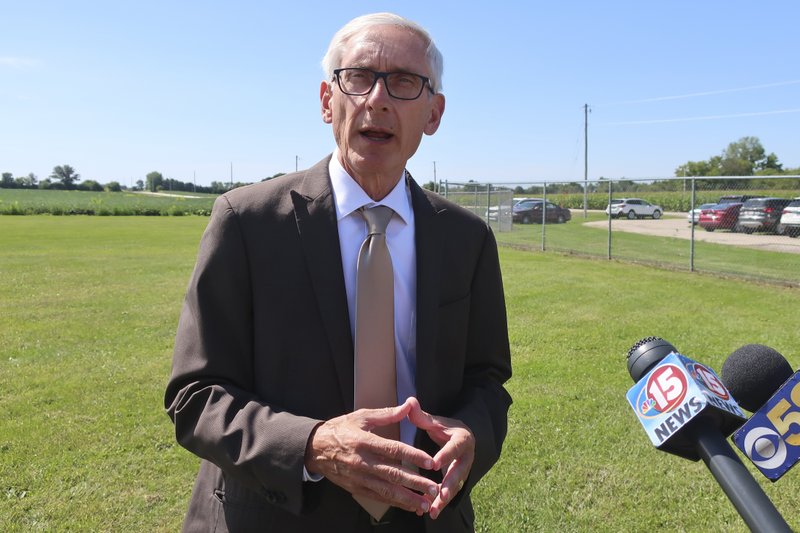Wisconsin
Evers will kill plan to punish UW free speech disrupters

MADISON, Wis. (AP) — Democratic Gov. Tony Evers will kill a contentious plan to punish students who disrupt free speech on University of Wisconsin System campuses, his spokeswoman said Friday as system regents took another step toward implementing the policy.
The regents in 2017 adopted a Republican-backed policy declaring students who twice disrupt others’ free speech would be suspended for at least a semester. Three-time offenders would be expelled.
The policy mirrors a bill Republicans introduced that legislative session after protests disrupted conservative speakers on college campuses around the country, including conservative commentator Ben Shapiro’s appearance at UW-Madison in November 2016.
The measure died in the Senate, but the regents pushed ahead with the concept as a policy. Evers, serving as a regent in 2017 due to his position then as state schools superintendent, cast the lone dissenting vote against the policy, warning it would have a chilling effect on free speech.
The policy hasn’t gone into effect because the regents haven’t updated system rules to incorporate it. The regents took a step closer on Friday, voting during a meeting at UW-Superior to authorize a scope statement outlining the changes. The move authorizes system staff update the rules to incorporate the policy.
The final rule language likely won’t be ready until spring. The regents plan to hold a public hearing on the terminology before signing off and sending the language to Evers for his approval. The governor’s spokeswoman, Melissa Baldauff, said that the governor would kill the proposal and that there’s no mechanism for Republican legislators to override him.
“His position hasn’t changed on it,” Baldauff said. “He didn’t approve of it when he was on the Board of Regents and he still disagrees with the policy.”
Edmund Manydeeds, an attorney appointed by Evers as a regent this past May, said it’s often difficult to live in a country where people are allowed to voice their disagreements, but that the policy would be too harsh for young students trying to find their voices. Suspensions and expulsions can follow students for the rest of their lives, he said.
“I just think it’s a very hard road to go down,” Manydeeds said. “Think about what it is we’re trying to do and whether we as citizens should be doing this.”
Regent President Andrew Petersen was the only regent who spoke in favor of the policy. As he explained what regents would be voting on, he said without elaboration that he supported the policy.
In the end, the regents approved the scope statement on a voice vote. Several regents could be heard voting “no” on a livestream of the meeting, but the camera did not reveal who cast those votes. System spokesman Mark Pitsch attended the meeting but said he didn’t know who voted which way.
Republican lawmakers re-introduced the discipline policy as a bill this past August but it likely wouldn’t survive Evers’ veto pen.
Sen. Chris Kapenga, one of the bill’s chief sponsors, issued a statement Friday saying Evers is siding with “agitators.”
“Free speech and open debate are foundational principles of the college experience,” Kapenga said. “When intimidation, threats, and organized disruption are used in the name of free speech, it violates those priniciples. The Governor says he doesn’t support negative consequence for these actions. Society must show young adults that we will hold them accountable for poor behavior especially when it impedes the rights of others.”
Follow Todd Richmond on Twitter at https://twitter.com/trichmond1






